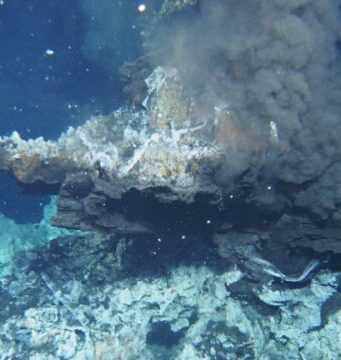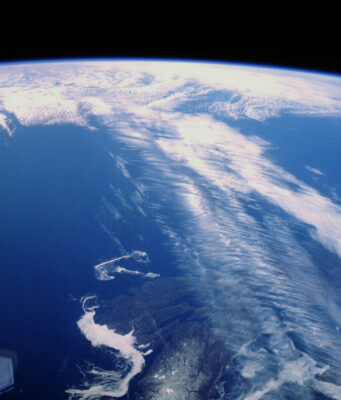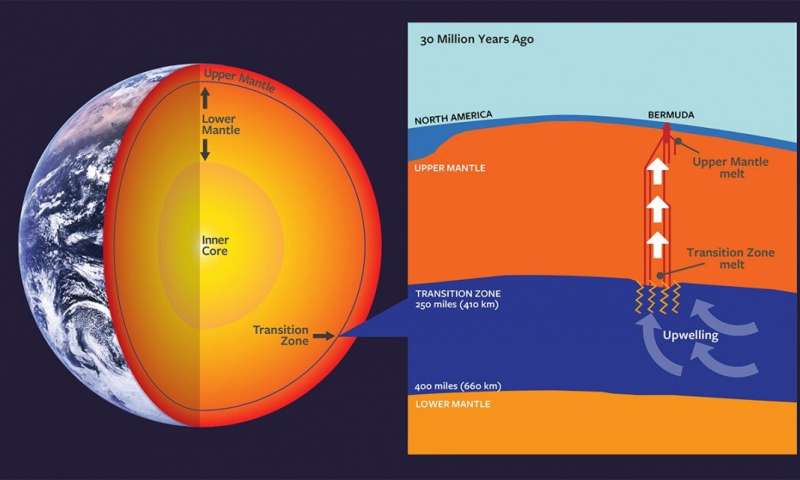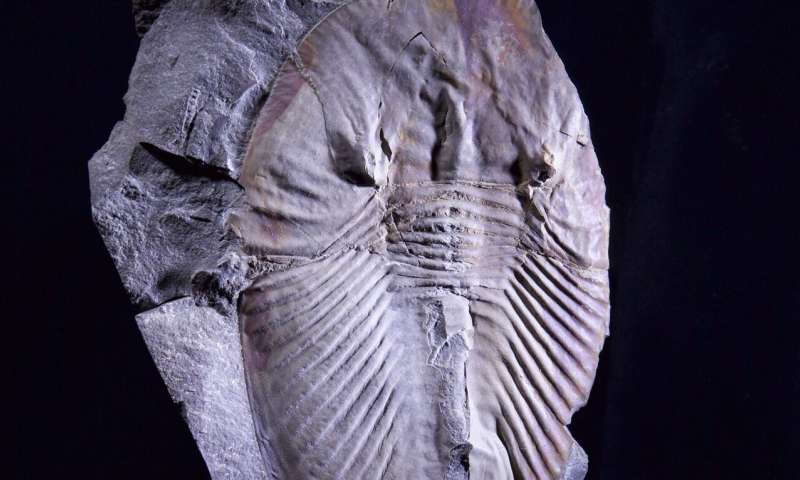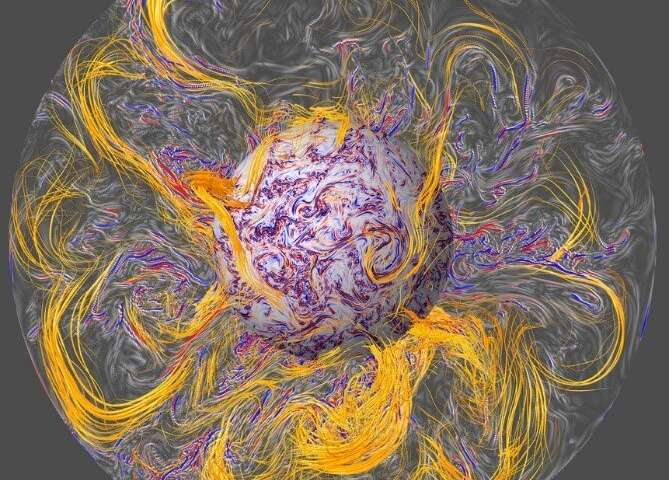Far below Bermuda's pink sand beaches and turquoise tides, geoscientists have discovered the first direct evidence that material from deep within Earth's mantle transition zone—a layer rich in water, crystals and melted rock—can percolate to the surface to form...
In and around the tangled roots of the forest floor, fungi and bacteria grow with trees, exchanging nutrients for carbon in a vast, global marketplace. A new effort to map the most abundant of these symbiotic relationships—involving more than...
It is well known that life on Earth and the geology of the planet are intertwined, but a new study provides fresh evidence for just how deep—literally—that connection goes. Geoscientists at Caltech and UC Berkeley have identified a chemical...
Radioactive carbon released into the atmosphere from 20th-century nuclear bomb tests has reached the deepest parts of the ocean, new research finds.
A new study in AGU's journal Geophysical Research Letters finds the first evidence of radioactive carbon from nuclear bomb tests in muscle...
A study from The University of Texas at Austin is the first published in a scientific journal to take an in-depth look at the challenging geologic conditions faced by the crew of the Deepwater Horizon drilling rig and the...
Extreme fluctuations in atmospheric oxygen levels corresponded with evolutionary surges and extinctions in animal biodiversity during the Cambrian explosion, finds new study led by UCL and the University of Leeds.
The Cambrian explosion was a crucial period of rapid evolution...
Researchers from Australia, Germany and the US have quantified the effect of climate extremes, such as droughts or heatwaves, on the yield variability of staple crops around the world.
Overall, year-to-year changes in climate factors during the growing season of...
Using data from field experiments and modeling of ground faults, researchers at Tufts University have discovered that the practice of subsurface fluid injection used in 'fracking' and wastewater disposal for oil and gas exploration could cause significant, rapidly spreading...
Two years ago a team of scientists visited Costa Rica's subduction zone, where the ocean floor sinks beneath the continent and volcanoes tower above the surface. They wanted to find out if microbes can affect the cycle of carbon...
The Earth's magnetic field experiences unpredictable, rapid, and intense anomalies that are known as geomagnetic jerks. The mechanisms behind this phenomenon had remained a mystery until the recent discovery of a CNRS researcher. Working with a colleague in Denmark,...
A secluded mountain region thought to be free of plastic pollution is in fact blanketed by airborne microplastics on a scale comparable to a major city such as Paris, alarmed researchers reported Monday.
Over a five-month period in 2017-2018, an...


